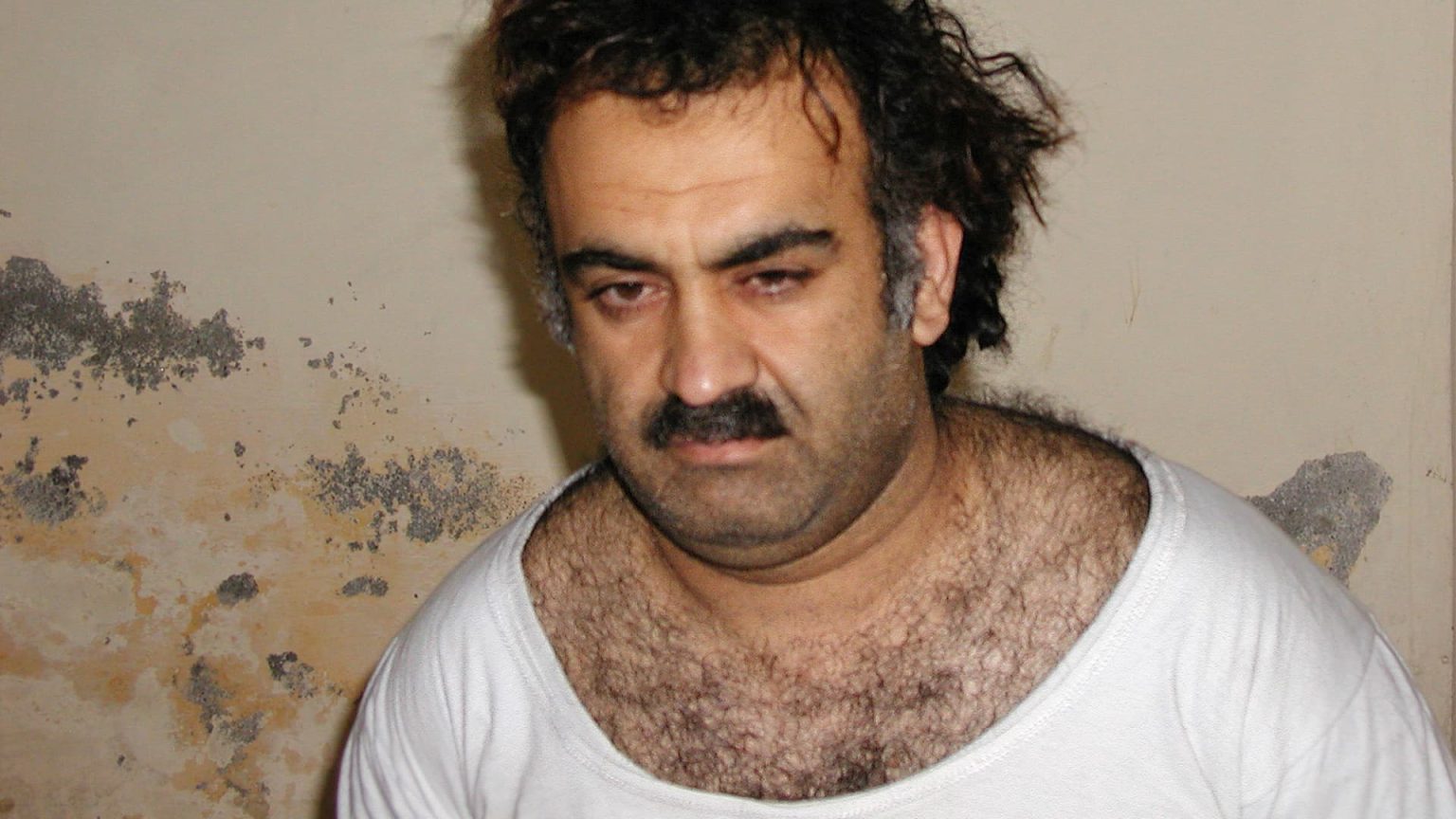Three men, including accused 9/11 mastermind Khalid Sheikh Mohammad, have agreed to plead guilty to charges related to plotting the 2001 terror attacks by al-Qaeda. The terms of the plea deals were not released, but it is expected that the men will plead guilty to some charges and potentially avoid death sentences as a result. The defendants are set to enter their pleas at the U.S. military base in Guantanamo Bay, Cuba as early as next week. In addition to Mohammad, the other men expected to plead guilty are Walid Muhammad Salih Mubarak Bin ‘Attash and Mustafa Ahmed Adam al Hawsawi.
The chief prosecutor in the case, Rear Admiral Aaron Rugh, wrote in a letter to 9/11 victim family members that the accused have agreed to plead guilty to all of the charged offenses, including the murder of the 2,976 people listed in the charge sheet in exchange for the removal of the death penalty as a possible punishment. The prosecution of the men and other defendants being held at Guantanamo Bay has been ongoing for more than 16 years, largely due to legal disputes over the admissibility of evidence obtained from the defendants while they were tortured in CIA detention sites.
The September 11 terror attacks resulted in the deaths of nearly 3,000 people when four teams of terrorists hijacked four airliners in the United States. Two of the planes were flown into the Twin Towers at the World Trade Center in New York City, while a third plane struck the Pentagon building. The fourth hijacked plane crashed in a field near Shanksville, Pennsylvania after passengers attempted to gain control of the cockpit. The attacks have had a lasting impact on national security, global politics, and the lives of countless individuals affected by the tragedy.
The decision of Mohammad and the other men to plead guilty could bring closure to the families of the victims of the 9/11 attacks, as well as potentially lead to a resolution in the long-standing legal proceedings. By avoiding potential death sentences, the accused may provide information and testimony that sheds light on the planning and execution of the attacks. The plea deals mark a significant development in the complex and emotionally charged case, which has been marred by delays and contentious legal battles over the treatment of detainees and the handling of evidence.
The agreements to plead guilty highlight the ongoing challenges and controversies surrounding the use of military commissions to prosecute alleged terrorists captured in the aftermath of the September 11 attacks. Critics of the military commissions process argue that it lacks transparency, due process, and legitimacy, while proponents maintain that it is necessary for holding terrorists accountable for their actions. The plea deals in this case may reignite debate over the effectiveness and fairness of the military commissions system, as well as the ethical implications of using torture to obtain information from detainees.
As the defendants prepare to enter their guilty pleas and potentially provide testimony about their roles in the 9/11 plot, the families of the victims and the broader public await further details and revelations about the events leading up to the attacks. The legal proceedings at Guantanamo Bay have been a focal point for efforts to seek justice for the victims of the September 11 attacks, and the outcome of these plea deals could have far-reaching implications for the future of counterterrorism operations, national security policy, and the pursuit of accountability for perpetrators of terrorist acts.


